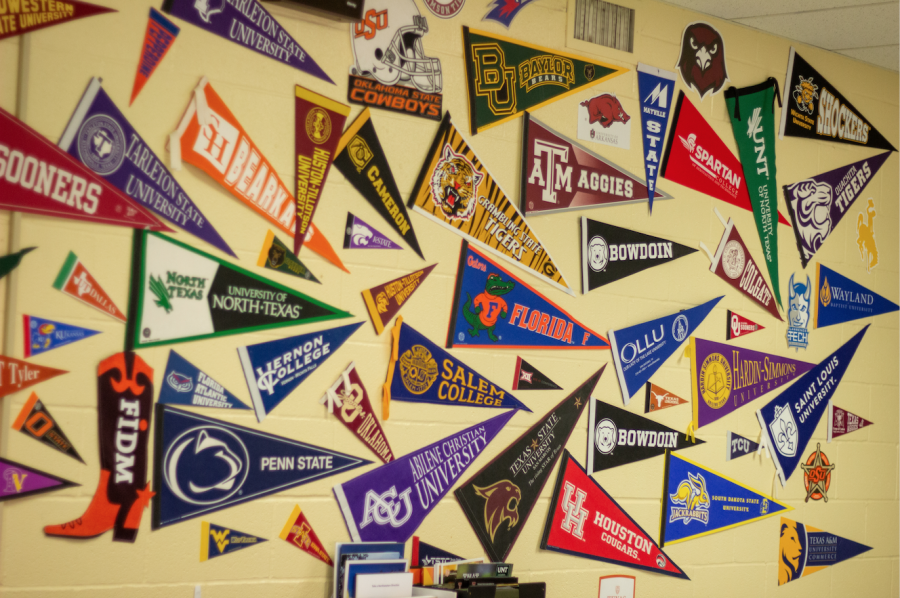Crunch time for seniors seeking financial aid
Rider counselors will be available on Oct. 14 to talk about college.
For the next couple of months, high school seniors planning to attend college will be swept up in the hustle and bustle of applications, recommendation letters, résumés and deadlines. When it all comes to an end, however, the cost of post-secondary education is one of the hardest bullets to bite.
In-state tuition to the University of Texas at Austin will total about $40,000 for a four-year bachelor’s degree, according to the university’s website. This cost doesn’t include potential out-of-state tuition or private college costs, textbooks, room and board, travel expenses, club dues and Greek life. This leaves many high school seniors wondering how they will be able to afford their degree.
College Counselor Julie Johnson believes students can take numerous steps to make college more affordable. As a first step, she recommends that applying seniors fill out the Free Application for Federal Student Aid (FAFSA) form, which could offer large amounts of money from grants or open the way to scholarships from specific universities.
“If the university sees that you’re going to get the Pell Grant or that you’re going to get help, then they may try and help with other grants or with other scholarships they have just from their office,” she said.
FAFSA determines a student’s eligibility based off their household status and their parents’ income, so it’s advised that any student applying to college fills out the form to get an idea of what they may be offered.
Johnson, along with the other counselors, will be available in the Rider library on Oct. 14 during parent/teacher conferences to help any students needing assistance with filling out their FAFSA applications.
In addition to financial aid directly from the government, there are numerous scholarships for academic merit, athletic performance, financial need and special qualities and talents of students that can alleviate some of the pressures of college tuition.
“Mrs. (Stacey) Longest (College & Career Clerk) has a ton of scholarships, and we always have a few kids who work diligently to fill out the scholarships she has,” Johnson said. “They will garner enough to pay for a year of college.”
However, Johnson warns that scholarships can be hard to collect given the high expectations of the donors and the competitive applicant pool.
“You have to have high SAT/ACTs… a top rank in your class, a talent, a lot of community involvement, volunteer hours,” she said. “Something that says ‘I’m special.’”
Another option for students who are currently enrolled in college are work-study programs. Students can apply for jobs at the campus library or in a building pertaining to their major and work flexible hours, all the while earning money to pay off expenses. Johnson is an advocate for work-study programs specifically because they allow students to maintain the schedule of a typical college kid.
“When the campuses are closed, you don’t have to work,” she said. “If you have a job at a restaurant in the town you’re going to school in, they’re going to want you to work Christmas Eve and the day before Thanksgiving, and that’s when college kids want to go home.”
If high school seniors are interested in beginning the process of applying for financial aid, visit Johnson and Longest in the College & Career Center on campus, obtain free FAFSA application assistance in the library on Oct. 14 or visit the following links:
https://bigfuture.collegeboard.org/pay-for-college/financial-aid-101/financial-aid-faqs
https://bigfuture.collegeboard.org/pay-for-college/financial-aid-101/how-to-complete-the-fafsa

